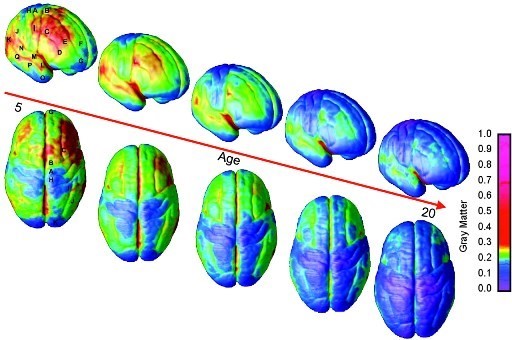Parents

Adolescent brain development
The brain develops a lot in the first 3-5 years of life. The structure and building blocks are present by age 9. The different centers of the brain become connected over time. The last part to mature is the pre-frontal lobe. This shapes behavior, personality, and decision-making and happens during adolescence.
Key points about adolescent brain development – what youth need:
- A safe, supportive environment is crucial for healthy brain development.
- Positive communication with adults helps teens as they grow.
- When talking to teenagers, pay attention to the emotions they see in you. Acknowledge their feelings and help them process what they’re experiencing.
- Teens need adults to believe in and encourage them.
- Teens respond better to rewards than punishments.
- Set clear, consistent boundaries. Respect their growing independence.
What harms brain development?
Any abuse (verbal, emotional, physical, sexual or neglect) can harm the brain's development. It can affect how the brain works especially in the early years of life. Sometimes the harm is hard to reverse. It is important to protect children throughout their development. Times of peak brain development occur:
- During pregnancy;
- The first 5 years of life; and
- During the second phase of brain development around puberty.
Alcohol and drugs can be harmful to the developing brain. Even one drink can cause brain development damage. During adolescence, connections between brain cells grow stronger. Alcohol and drug use during this stage can affect memory and organization. For optimal brain development, it is best to avoid alcohol until adulthood.
Teen Brain: Behavior, Problem Solving, and Decision Making
Parents often wonder why teens behave impulsively or take risks. Teens may not seem to think things through or consider the consequences of their actions. This is because adolescents’ brains develop differently from adults. The brain continues to grow from birth through adolescence into adulthood.
Changes in the brain include an increase in the connections between the brain cells. These connections make the brain pathways more effective. These changes are essential for the development of coordinated thought, action, and behavior.
Changing Brains Mean Adolescents Act Differently From Adults
Pictures of the brain show teen brains work differently than adults. Emotions and reactive thoughts guide their actions. Drugs and alcohol during the teen years can change or delay these developments.

Based on their brain development, teens are more likely to:
- Act on impulse;
- Misread or misinterpret social cues and emotions;
- Get into accidents;
- Get involved in fights; and
- Engage in dangerous or risky behavior.
Adolescents are less likely to:
- Think before they act.
- Pause to consider the consequences of their actions.
- Change their dangerous or inappropriate behaviors.
Understanding teen behavior
Knowing more about the brain doesn’t tell us about the brain's function. If a particular structure is immature, the function(s) it governs should show immaturity. Some experts say adolescents take more risks at least partly because they have an immature frontal cortex. This area of the brain takes a second look at something and should select a certain behavior. But it’s complicated to move from structure to function. Deciding what part of the brain caused the behavior isn’t easy. There are adolescents that are hard to get along with. There are adults that are hard to get along with for the same reason. Presumably, the adults have mature brains so linking behavior to brain development isn’t clear.
These differences don’t mean teens can’t make good decisions. They know right from wrong and should be held accountable for their actions. Understanding these differences can help adults better manage and support teens.
For more information visit:
- Dan Siegel -"The Adolescent Brain" video.
- American Academy of Child & Adolescent Psychiatry (AACAP) factsheets.
- AACAP's Facts for Families provide concise and up-to-date information on issues affecting children, teenagers, and their families. AACAP provides this important information as a public service and the Facts for Families may be duplicated and distributed free of charge.
The Texas Department of State Health Services does not endorse external links to other websites or documents created by other agencies. These links and documents are informational and may not be accessible to persons with disabilities.
 Highlights
Highlights